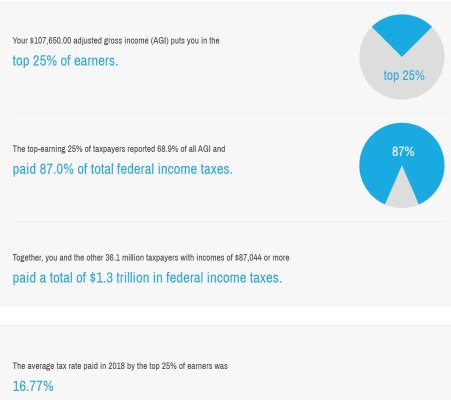pb4uski
Give me a museum and I'll fill it. (Picasso) Give me a forum ...
.... And my goal now is to be sure to spend as much as possible to avoid estate taxes. I can look at that as whatever I want to buy I’m getting for 40% off. Can’t wait to get my Altoz tracked zero turn mower. It will compliment our new John Deere tractor well. Of course I’d rather leave the money to my family but that’s not possible without losing 40% to taxes.
Tax policy does drive behavior. I would be married but it would hit my other half too hard tax-wise being married to me. He’d like to sell his rental property but that would cost him over 10k in health insurance subsidies.
The idea of the government taking 40% of what you’ve worked your lifetime to earn is bothersome for sure. Especially the way they’ve devalued the dollar.
So the 40% is after the $11.7 million exemption amount and the first $1 million that is taxed at various rates lower than 40%... so the first $11.7 million is 0% estate tax, then next $1 million is 34.58% and anything above $12.7 million is at 40%... so first, consider yourself very lucky and second, get going on estate tax planning.
So they don't really take 40% as you said because the first $11.7 million is 0%... even for a $20 million estate it would net out to 16.33%.

